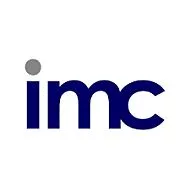- within Law Department Performance topic(s)
- within Employment and HR, Immigration and Wealth Management topic(s)
- in European Union
As dealmaking becomes more complex and fast-paced in the competitive business world, traditional due diligence models often fall short of their expectations. Today, investors look for value beyond risk assessments. They seek clear and quantifiable value right from the outset after acquiring firms. Successful firms eye continued performance well into the future.
While global firms have traditionally sought due diligence services from established partners, today's priorities are something different. Value creation must be embedded into the due diligence process itself.
Redefining Due Diligence – Not Protection, but Performance
Historically, due diligence has been all about identifying liabilities. These included irregularities in finances, legal exposures, and gaps in compliance. While those elements remain essential, leading teams formulating deals are now integrating strategic growth with their diligence efforts.
This includes a broader and more structured analysis, which can identify key value drivers early. These include:
- Operational Efficiencies
- Pricing Models
- Revenue Levers
- Enhancements of working capital
Crucially, this also involves integrating HR due diligence, ESG due diligence, and digital capabilities into the overall assessment.
A Framework Built for Accuracy and Action
A modern value diligence framework largely prioritizes identifying core value levers, and deploying industry-specific models and real-world benchmarks. These frameworks provide a comprehensive insight into how and where organizations can improve their performance.
Whether it's HR due diligence or ESG due diligence, a high level of actionable insight comes from combining data analytics with deep expertise in the sector. This ensures that the opportunities discovered are both realistic and achievable in various market scenarios.
Creating Momentum Before the Deal Closes
Global businesses strive to identify value early to sign deals quicker. Sellers can initiate strategic improvements before a transaction to enhance valuation, while buyers can enter negotiations with greater confidence in the upside. As a result, businesses benefit from more informed decision-making processes and better deal terms. Organizations also enjoy faster ROI once the deal closes.
In sell-side scenarios, this early groundwork often leads to tangible improvements. This reflects in terms of better cost reductions, or streamlined operations, all of which enhance the outcomes of the deal.
Bridging Diligence and Execution
A gap often exists between what's identified during diligence and what gets delivered after the deal. Organizations need continuity to bridge this gap. Ideally, the same team that scopes value opportunities stays involved through post-deal execution.
Dealmakers must keep strategic insight connected to delivery to prioritize key initiatives and act on quick wins. This process ensures they remain aligned with their long-term growth objectives. A truly integrated approach to diligence combines transactional expertise with the capability to implement, so that real value is realized.
Why Do Companies Need to Adopt Due Diligence?
- It helps find ways to improve operations and reduce costs before a deal is signed.
- It makes it possible to examine HR practices, environmental work, and digital tools right away.
- It lets sellers boost performance early, raising the company's value before closing.
- It gives buyers a clear view of potential benefits, so they can negotiate with confidence.
Looking to Build a Smarter Deal Strategy?
Global organizations looking to engage in M&A transactions or deals seek trusted consultation solutions from established professionals. The IMC Group continues to be a leading team of experts specializing in due diligence services, including HR and ESG due diligence. Working with this team, businesses can prioritize value identification and delivery.
With data-driven insights and expertise across every sector, these professionals help businesses close deals with confidence. Organizations can turn due diligence into a competitive advantage with the right team of professionals on their side.
The content of this article is intended to provide a general guide to the subject matter. Specialist advice should be sought about your specific circumstances.


